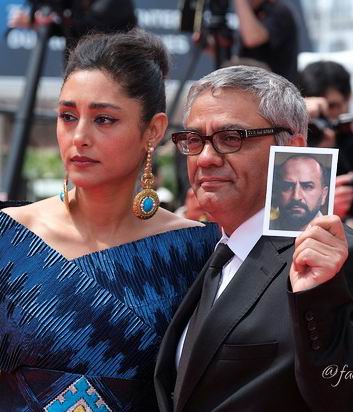|
|
| Welcome to Online Film Home! |
|---|
|
|
|
_poster.jpg) |
KARLOVY VARY 2024 Proxima
Review: Nothing in Its Place
by Vladan Petkovic, Cineuropa
July 5, 2024
One evening, one apartment, five leftist students, and one vision of a non-violent socialist revolution. When this gathering is interrupted by the unannounced visit of two members of a right-wing movement, things quickly spiral out of control.
How far are people willing to go for their political beliefs, and how much can the ideology of a group influence the behavior of an individual? Nothing in Its Place holds up a mirror to more than one revolution.--kviff
Turkish director Burak Çevik’s fifth feature, set in 1978, presents a struggle between ideological factions in his country as universal, but fails to fully engage the viewer.
_001.jpg)
In his fifth feature, Nothing in Its Place, which has just world-premiered in Karlovy Vary’s Proxima Competition, Turkish director Burak Çevik takes a look at ideological – and at times literal – war between a left-wing organisation and the far-right Grey Wolves movement in 1978 in his country.
While his distinct stylistic approach implies that this struggle is universal and represents such clashes all over the globe and throughout history, it also fails to engage the viewer.
It appears that the film was made in one shot, but there are plenty of opportunities for invisible cuts, not least when the camera flies through the spyhole in the door of the house where the five members of the group are based. Wearing period-appropriate clothing and culture-appropriate moustaches, they are celebrating the 24th birthday of one of them and discussing the last issue of their magazine.
There is no exposition beyond the first minute, during which we hear a TV anchor speak about skirmishes between the opposing sections. But we gather that these are idealistic students who read and discuss Marx, and we glean information about a financial conspiracy related to Pinochet’s takedown of Allende, and the merits of Cruyff as a footballer playing for Ajax, a team that used to support the Nazis, but who now has a chance of scoring against the fascist Argentina… One of them discovers that a comrade particularly close to him possesses a Grey Wolves book. The guy explains it’s for research purposes, “to understand how fascists think”, but he is too wary of revealing this to the others.
Then, at the half-hour mark, one of them leaves to get more wine and cigarettes, and this is when the camera goes out with him and we see two men arrive in a car in the distance – after a police vehicle that was just there with its rotating lights on has departed. These are the Grey Wolves, and they barge into the house, tie the leftists up and start harassing them and looking for weapons. Things spiral out of control, as these two men are clearly not professional thugs or assassins, plus the violence they mete out doesn’t feel that brutal either, but rather uncontrollably angry, confused and clumsy.
The film looks like it was actually made in 1978, thanks to the muted lighting and a colour palette in drab hues of beige, grey and brown dominating the interior. At one point, the constantly floating camera “listens”: it fixes on the lamp overhead and stays there as a philosophical debate about peaceful revolution unfolds. But these theoretical platitudes sound rather washed out today, especially when they are delivered by protagonists that are not fully fleshed-out characters, even though they are played by more-than-competent actors. Also, there are no close-ups, so they are more akin to stand-ins for these ideas and discourses.
Baris Aygen’s one-shot camera work also creates distance, as it has a voyeuristic quality, often peeking around corners or following the protagonists, and making the film feel more theatrical than cinematic, which is also supported by its one-interior setting. Faten Kanaan’s musical theme is dissonant, intense and mournful, even tragic, but it doesn’t help immerse the viewer in the proceedings. And since we are already removed from the characters, the distance most international viewers will feel from this particular period in Turkish history makes the feature seem theoretical, rather than universal: as if it were about a fictional country enduring fictional ideological strife.
Nothing in Its Place is a co-production between Turkey’s Fol Films and Vayka Films, Germany’s Flaneur Films and South Korea’s Jeonju Film Festival.
*****
Synopsis
One evening, one apartment, five leftist students, and one vision of a non-violent socialist revolution. When this gathering is interrupted by the unannounced visit of two members of a right-wing movement, things quickly spiral out of control.
Turkish director Burak Çevik uses long takes and an enclosed space as a canvas onto which his ensemble cast’s strong performances paint a story reflecting the turbulent political situation in 1978 Ankara. How far are people willing to go for their political beliefs, and how much can the ideology of a group influence the behavior of an individual? Nothing in Its Place holds up a mirror to more than one revolution. -kviff

|
|
|
|

Cannes 2024 |
Choose an item to go there!
|
| |
|
|

